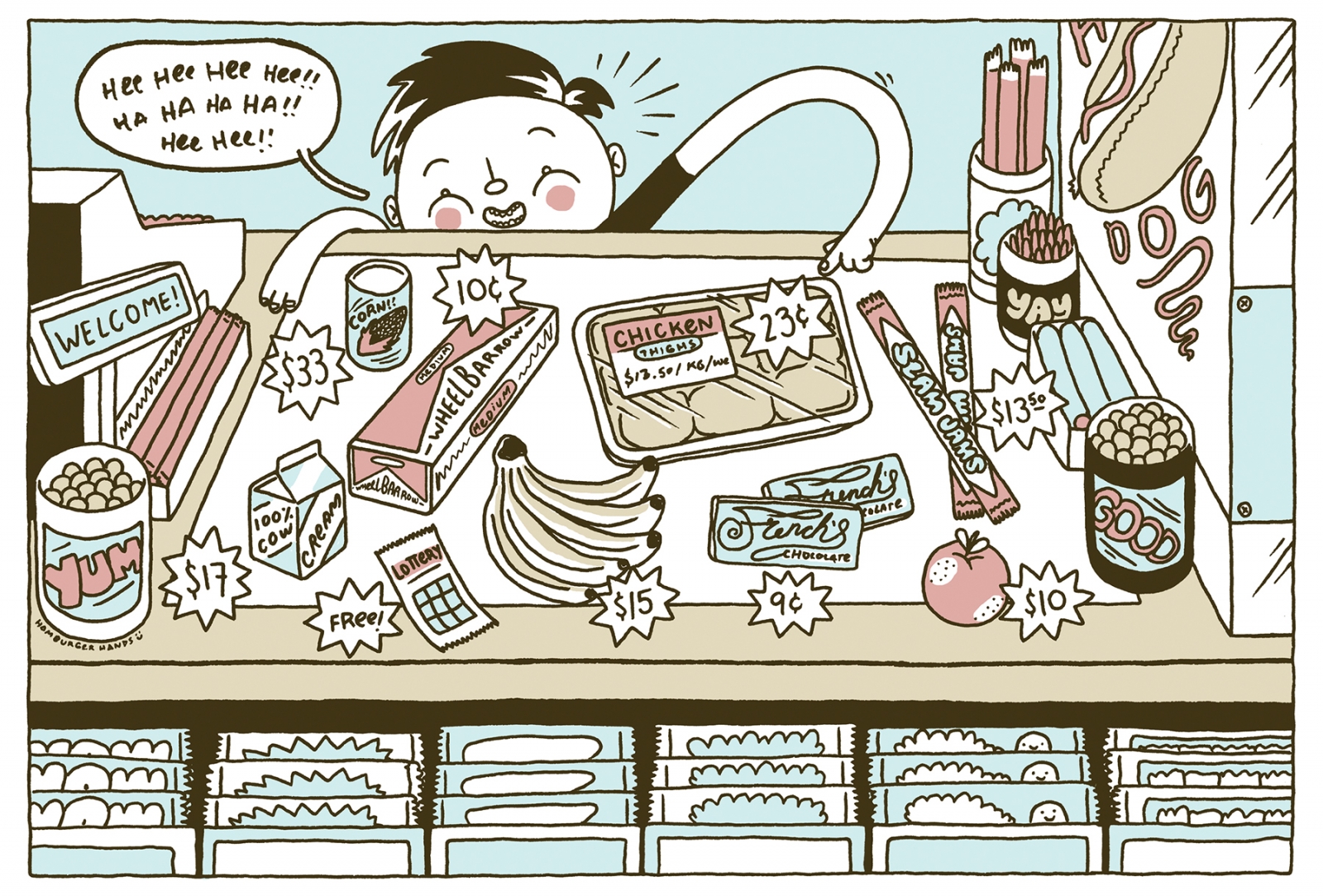Almost every small town has one: A Chinese family business. Usually, it’s a restaurant that offers chow mein and chicken strips, but, in my parents’ case, they owned the Super A Foods grocery store in Morinville. Our Chinese noodles were for family only, and the chicken strips were in the freezer.
Instead of playing with friends, I worked at my parents’ store. As the first-born son, I had to stock the shelves with cans, mop the floor and grind meat chunks into hamburger. My hands constantly smelled of raw meat. The other elementary students steered clear of me. I never knew if it was because of the meaty odour lingering on my fingers or the fact that I was the only Chinese kid in our elementary school.
When I was younger, I liked the novelty of being part of the family business. My dad even let me work the cash register until he realized that I made up costs for items with no price tags. Can of corn: Five dollars. Carton of cigarettes: Seventeen cents. Dad demoted me to stock boy shortly after he discovered my creative pricing.
Business was good in the beginning because my parents’ store was the only game in town, but, as Morinville grew, so did the number of businesses, including a brand new grocery store – the IGA – in the middle of the town. I was excited to see a new building go up, but I didn’t realize the consequences of a rival grocery store in our small town.
When the IGA opened, the people shopping at our store started to dwindle. Some stayed out of loyalty, but most drifted to the shiny new store. Dad asked me to spy on our competition to see what they were charging for cans of soup and pickles so we could undercut them. The fear of getting caught was too much for me, and I told Dad I had too much homework to do.
Still, we did what we had to do to stay in business. We advertised specials with banners on the windows. Mom and Dad opened earlier and closed later. We even opened the store on Sundays. None of it mattered. We had gone from a thriving local business to an oversized convenience store. Our overhead was low since we were the staff. We never had to worry about going hungry since we had a building full of groceries. My parents lived a frugal lifestyle until they retiredin 1987.
